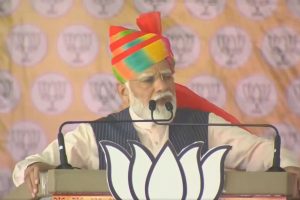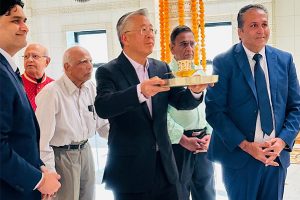State labour minister Moloy Ghatak will convene a tripartite meeting at Uttarkanya in Siliguri on 30 July to discuss in detail the present state of affairs in tea plantations of north Bengal.
Official sources said the meeting is significant as it will review the entire scenario of plantations, including the plight and sentiment of the workers, before fixation of a minimum wage structure for the tea industry.
The move comes at a time when workers, belonging to Trinamul Congress-backed trade unions, have started demanding arrears that are pending from 1 April 2017 to 31 December 2017.
Notably, the department had held a 29-member statutory Minimum Wage Advisory Committee meeting in Kolkata on 13 July and another tripartite meeting on other issues related to the tea industry at Uttarkanya on 17 July.
Chief Minister Mamata Banerjee herself, for the first time, held a meeting with officials of Tea Advisory Committee (TAC) and others, including Hill leaders like GTA chairman Binoy Tamang and GNLF president Mann Ghisingh, at Uttarkanya on 12 July to take stock of the situation in tea plantations, especially from the Hills and the Dooars.
The department will also hold another meeting with two planters’ organizations-the Darjeeling Tea Association (DTA) and the Darjeeling Indian Tea Association (DITA) in Kurseong tomorrow to know about the present situation of payment of interim ration value among dailyrated workers and 18 per cent interim hike for monthly- rated staff and sub-staff, especially in the Hills.
Sources said that following instructions from Miss Banerjee, the labour department is determined to resolve the wage issues ahead of the Lok Sabha elections.
A majority of the trade unions, under the banner of the Joint Forum, a conglomeration of over 23 trade unions in the tea industry, have deferred a three-day strike they had called from 23 July after top labour department officials assured union leaders that they would table a statutory wage structure for tea workers on 30 July.
On the implementation of the Minimum Wages Act for tea workers, almost all trade unions in both the plains and the Hills are almost united to continue the movement as the state government could not settle the matter after constitutions in the statutory Minimum Wage Advisory Committee (MWAC) after the last tripartite wage agreement was terminated on 31 March 2017.
To provide relief among workers, the state labour department has finally asked planters, through tripartite meetings, to pay an interim relief of Rs 17.50 a day and interim ration value of Rs 9 a day with effect from 1 January 2018. As a result, hundreds of tea workers have been demanding the arrears, which are pending from 1 April 2017 to 31 December 2017.
“Unnecessary complexities are being created to facilitate owners of tea gardens by announcing interim relief for tea workers, though the state government had ensured that Minimum Wages will be settled shortly,” spokesperson of the Joint Forum, Ziaul Alam, said.
Administrative officials are in a dilemma over arrears, at a time when a section of the planters, even in the Hills, have not yet made the interim wage payment to workers, staff and sub-staff with effect from 1 January 2018.
Notably, daily-rated workers have received Rs 132.50 a day even till 31 December 2017. Now, planters have started paying Rs 159 a day [(Rs 132.50 + Rs 17.50 interim relief) + Rs 9 (ration value)] with effect from 1 January 2018. According to minister Ghatak, the department has proposed tea estate owners to pay a minimum of Rs 176 a day, following the National Floor Level Minimum Wages (NFLMW), with effect from 1 June 2017.
Sources said department officials associated with the MWAC are updating a statutory minimum wage structure, which was tabled on 17 July at Uttarkanya, based on the Consumer Price Index of 2017-18. Official sources said planters should not disagree with the state government in settling the ‘minimum’ wages over Rs 176 a day.
“Planters hiked Rs 37.50 for three years during the last settlement. Had the planters increased the same rate (Rs 37.50 a day), wages would have hiked up to Rs 170 (Rs 132.50 + Rs 37.50). The rate of increase must be higher than the previous rate during fixation of fresh wages,” a source said.











